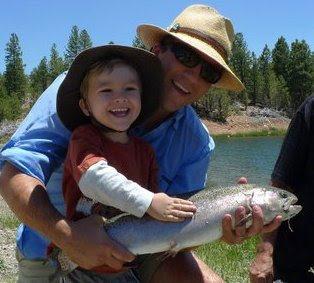
The content of the blog will be quite diverse, but this thread will weave it's way into the vast majority of my posts.
So, a topic that is relevant in the highest possible regard to both change and to my lived experience of change is my role as a father. I've got two boys, three and a half and nine months of age. They are, as you might expect, the apples of my eyes.
 New fatherhood is a crash course in learning to navigate change. Because, quite simply, it changes everything. It is also a really sharp opportunity to highlight an important component of successful adaptation to changing life conditions: psychological flexibility. Psychological flexibility refers to the ability to adjust your behavior to effectively meet the demands of your environment while maintaining fidelity to your value system.
New fatherhood is a crash course in learning to navigate change. Because, quite simply, it changes everything. It is also a really sharp opportunity to highlight an important component of successful adaptation to changing life conditions: psychological flexibility. Psychological flexibility refers to the ability to adjust your behavior to effectively meet the demands of your environment while maintaining fidelity to your value system.
In other words, you are able to focus on and do what matters to you in the midst of constantly changing life circumstances. I could not imagine a quality more useful for new fathers.
It is easy; in fact it is for many of us the default setting, to try to live our lives by trying to hold on to something solid, a foundation that we can adhere tightly to. These often manifest as principles, or sacred truths that we grip tightly with resolution and determination. The problem is, it is maddeningly difficult to find something solid to hold on to in this life.
Let's use the topic at hand as an example. I could easily point to my children as the quintessetial example of what is important to me. Still, while I can, at this point, hold on to them, I won't be able to forever. The way in which I express my love to them has already changed, and will continue to change over the course of our lives- at least it had better.
What would happen if I continued to show Quinn my love for him when he is 17 in the same manner that I do now? My guess is nothing good.
This is pretty obvious, but it gets tricky. What happens when what actually occurs in our lives deviates from what is supposed to happen? When we have a notion of what things should be or an idea of how things should go, are we quick to let go and adapt to changing circumstances? In general, I would propose that most of us are actually fairly terrible at doing this, myself most emphatically included.
Psychological flexibility is born from contact with reality as it exists, right now. As such, it is often undermined by our own attempts to define what "should" be, or to relate to what is in front of us based not on the facts of the situation, but on our interpretation of those facts as filtered through our belief systems, expectations, and life experiences.
If I don't have room for flexibility, I don't have room for my kids to become who they are. If my role, or set expectation, is to do x, my kids require y and I don't adapt, I'll fail to meet their needs. Often I find myself locked into this pattern, and the results are generally not what I'd like them to be.
There are also times when I am willing to put aside my preconcieved ideas about what I am supposed to do and about how my kids are supposed to behave. During those times I listen more closely, behave more compassionately, and react with greater nimbleness. It is spontaneous, and I often feel like I am traveling without a map. When I'm willing to do this, I have found a deep and resonant feeling of satisfaction, the kind of richness that tends to come with doing my best at something that is vitally important to me.
No comments:
Post a Comment